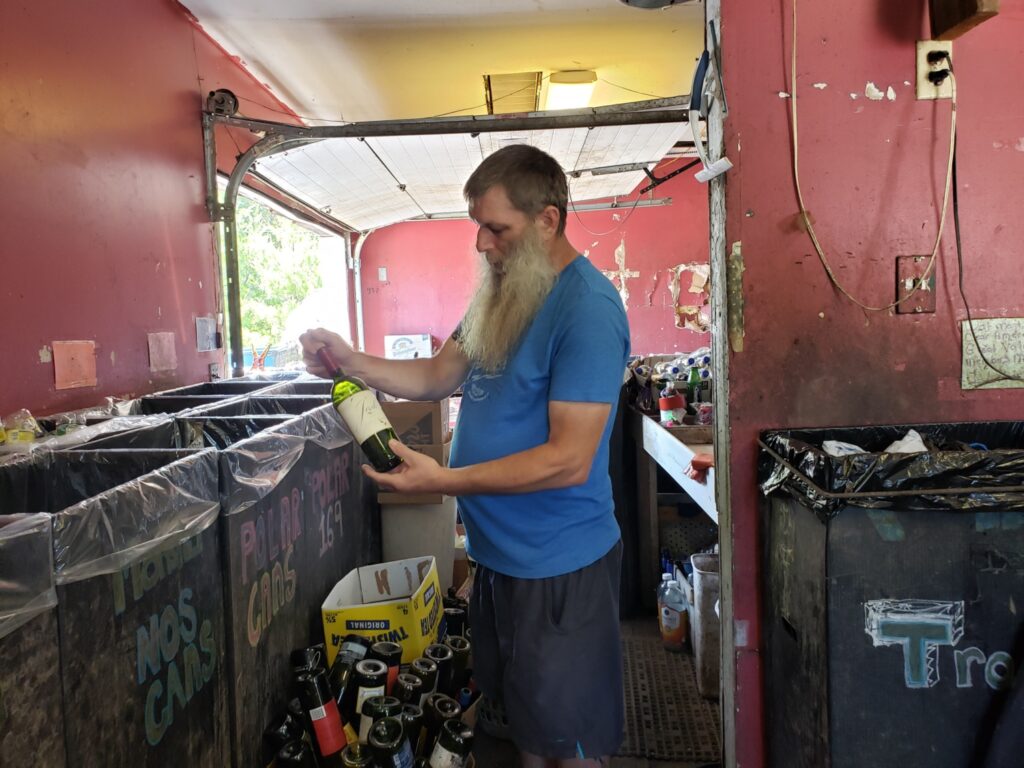Capital Chatter: When can legislators leave their turf?
Published 7:00 am Thursday, August 9, 2018

- Capital Chatter: Dangerous times for the Oregon Legislature
When are Oregon legislators legally allowed to leave their home turf?
The Oregon Constitution implies they may be absent from their legislative district only when conducting legislative business. I asked a couple of Oregon scholars – Norman Williams of the Willamette University College of Law and Jim Moore of Pacific University – whether such a strict interpretation of the constitution was realistic. Their answer: no.
But what they said was intriguing. I’ll get to that in a moment but first a bit of background.
The question came up with Oregon Democrats’ allegation that state Rep. Knute Buehler, R-Bend, must relinquish his legislative seat because he is living in a Tualatin apartment while campaigning for governor. That question has been settled by Deschutes County Clerk Nancy Blankenship, who determined that Drs. Knute and Patty Buehler still officially live in Bend. That must be a relief to the Buehlers’ two dogs.
Regarding legislators’ residency, the Oregon Constitution states: “a person may not be a Senator or Representative if the person at all times during the term of office of the person as a Senator or Representative is not an inhabitant of the district from which the Senator or Representative may be chosen or which the Senator or Representative has been appointed to represent. A person does not lose status as an inhabitant of a district if the person is absent from the district for purposes of business of the Legislative Assembly.”
Does the second sentence imply that legislators may never be absent for non-legislative business — skiing at Mount Bachelor, a night at the Coast, shopping in Portland’s Pearl District, etc.?
“There’s almost nothing in case law about that,” Norman Williams, associate dean and law professor at Willamette, told me.
Instead, he said, it’s helpful to look at the federal Constitution, which has its own set of residency requirements, as well as Oregon and U.S. tax rulings. Those have been interpreted as saying your legal residence is where you spend most of your time when you’re not doing such official business as serving as president.
In one case, Williams said, President George H.W. Bush was declared a resident of Texas — a hotel in Houston — instead of being a voter in Washington, D.C., while living in the White House.
Williams said Oregon’s legislative residency requirement is part of the original constitution from the 1850s. It was included because legislators had to travel long distances from Klamath Falls, Pendleton and elsewhere to reach the state capital.
By my counting, two-thirds of Oregon legislators now live within an hour or so of the Capitol. That still puts distant legislators — and their constituents — at a disadvantage.
Since its founding, the state has operated on the premise of citizen-legislators — people serving part-time as lawmakers and maintaining lives outside the Oregon Capitol.
“The reason you have these residency requirements in the Oregon Constitution and the U.S. Constitution is you want the representative of the people to be in contact with the people he is representing, or she is representing, because we think democracy works better that way,” Williams said.
In the 18th and 19th centuries, Congress wasn’t in session nearly as long. And only recently has Oregon converted to annual legislative sessions.
Members of Oregon’s congressional delegation frequently return to the state on weekend trips, as well as during some recesses. However, I should note one irony: The increased partisanship and dysfunction in Congress can be traced partly to representatives’ and senators’ working shorter weeks, returning to their districts and not staying in the District of Columbia to get to know one another and their families.
Still, Williams said, the real question is whether the political process has departed from what the Founders envisioned as far as connections to constituents.
Political scientist Moore agreed that courts would be unlikely to uphold the strict requirement of legislative residency that I hypothesized. In the 1850s, legislators — farmers and merchants — likely would have violated such an interpretation in their regular business activities each day.
“The most entertaining version of true residency was Wes Cooley in his Oregon Senate days,” Moore said. “His official address was a mobile home barely in his district. It was pretty clear that he rarely went there, and it was not apparent he had ever even slept there. That ended up being the least of his problems once he went to Congress.”
• Revolving door in the governor’s office: Bryan Hockaday is the latest spokesperson to leave Gov. Kate Brown’s staff. Long rumored not to be happy, he reportedly left after two-and-a-half years for an opportunity in the private sector.
Politicians’ spokespeople do seem to come and go, whether in Buehler’s campaign, the governor’s and secretary of state’s offices, or legislative offices. For example, Megen Ickler left in June as communications director for House Speaker Tina Kotek, and Secretary of State Dennis Richardson has had two spokespeople depart.
Only the governor’s voice: On Thursday afternoon, Brown was initiating what her staff said would be a series of telephone conference calls with the press. Brown held fewer formal press conferences than other governors I can recall, but occasionally held informal media availabilities. The only difference was the governor and journalists were sitting around a table, which she seemed to prefer, instead of her standing at a lectern. Even those were for only 30 minutes or so, and happened infrequently.
Although a telephone media session is better than nothing, I think all of us journalists would prefer to ask questions of the governor in person and to do regularly — weekly during legislative sessions and once or twice a month during the rest of the year.
• Be glad we’re not up north: I recently spent a few hot days in the Puget Sound area, where air conditioning is less common, while apartment-sitting for our daughter and caring for her two special-needs cats. This was right before Washington’s primary election.
Observations:
– Washington state has far more elected offices than Oregon. As a result, political signs were almost everywhere, including bunched together in highway rights-of-way. Ugh. Unlike in Oregon, most candidates listed their political party on their signs.
– Many signs were poorly designed as far as colors, font and message. Simple is better. I wonder whether there’s any correlation between the quality of lawn signs and a candidate wins election.
– I’ve always been skeptical of people, especially politicians, whose taglines proclaim their ethics and integrity. If you’re a person of good character, you don’t have to point it out.
– One candidate had posted filthy comments on social media. An opponent collated them and published them on a front-and-back flier mailed to voters. My initial reaction when I picked it up: Can we really send open vulgarities and obscenities like this through the U.S. Mail?
By the way, I easily paid tolls for crossing the Narrows Bridge. We’ve set up an online account, have a sticker on our vehicle windshield, the money automatically is deducted, and we bypass the toll booths.
I’ve driven on toll roads in Washington, Colorado, Virginia, New Jersey and other states. Modern tolling is convenient, regardless of the cost. Congestion pricing, such as near Dulles International Airport, can get spendy.
In most cases, a toll-free alternative exists but it’s slower.
Dick Hughes, who writes the weekly Capital Chatter column, has been covering the Oregon political scene since 1976. Contact him at TheHughesisms@Gmail.com, Facebook.com/Hughesisms, YouTube.com/DickHughes or Twitter.com/DickHughes.





